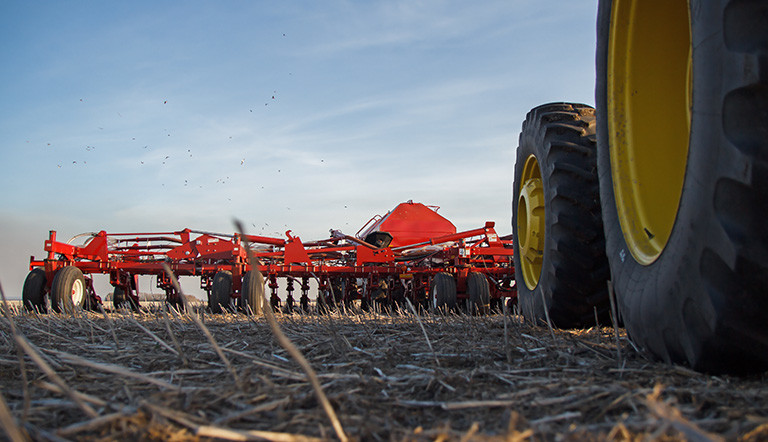
2024 Re-Cropping Advisory

As we get close to seeding in the prairies, we thought it important to make sure there was an understanding of the re-cropping recommendations we have due to the persistent drought conditions experienced across Western Canada. Environmental conditions influence the breakdown of herbicide residues in the soil. These conditions include soil moisture, temperature, organic matter content and pH.
When herbicide residues are not broken down, crop injury can occur causing reduced crop stand, chlorosis, reduced crop vigour, and a reduction in yield. Such injury has been seen in recent years due to dry conditions.
If the following products were used in 2023 and you have experienced any of the environmental conditions described in your area please be advised of our recommendations:
ESTEEM®
(active ingredient Clopyralid)
If the following conditions were experienced in your area in 2023:
- < (less than) 140 mm (5.5”) of rain between herbicide application and August 31 in the year of application
- or < (less than) an annual precipitation of 175mm (6.9”)
Adama Canada strongly discourages growing the following crops in 2024
- Peas
- Soybeans
It is important to note that lentils and chickpeas are not on label to grow in the crop year following an application of clopyralid.
DAVAI® , PHANTOM® , PYTHON® or QUASAR®
(active ingredients Imazamox or Imazethapyr)
If the following conditions were experienced in your area in 2023:
- < 125 mm (5”) of rain between herbicide application and Aug. 31 in the year of application
- Soil pH < 5.5
- Repeated applications of group 2 herbicides on the same field
- Brown soil zone (< ~3% organic matter)
- Brown soil zone if < 15 mm of rainfall in any of the months of June, July and August, 2023
ADAMA Canada strongly discourages growing the following crops in 2024:
- Canola (non-imidazoline tolerant)
- Durum Wheat
- Canary seed
Growers are expected to follow sound and informed agronomic practices. Due to the extreme risk of crop injury under the circumstances described above, ADAMA Canada strongly advises against growing canola, durum wheat or canary seed in 2024.
Growers who choose to ignore these recommendations do so at their own risk.
ADAMA strives to provide the best agronomic advice and customer experience possible. We work with customers to provide good product stewardship, to mitigate risk and to help optimize 2024 production outcomes. Every situation is unique, please contact your ADAMA representative to discuss your circumstances and to create the best plan available if you are unsure.
Here is a link to a reference tool from Environment Canada: Environment Canada Precipitation Maps
If you are in an area where the precautionary environmental conditions described do not apply, the re-cropping recommendations include:
-
ESTEEM:
Barley • Canola • Flax • Forage Grasses • Oats • Mustard • Rye • Wheat
-
DAVAI & PYTHON:
Barley • Canary Seed • Canola • Chickpeas • Corn • Flax • Lentils • Oats • Peas • Soybeans • Clearfield® sunflowers • Wheat (spring, durum).
-
QUASAR:
Clearfield Canola • Spring Barley • Spring Wheat • Lentils • Peas
-
PHANTOM:
Alfalfa • Clearfield Canola • Spring Barley • Spring Wheat • Lentils • Peas
If you have any questions on this please reach out to your local ADAMA representative here,
The ADAMA Canada Team
Related Products
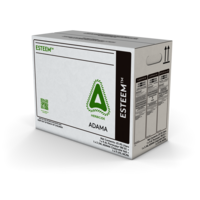
ESTEEM®
Superior control of broadleaf weeds like thistles and cleavers in barley, spring wheat and durum.
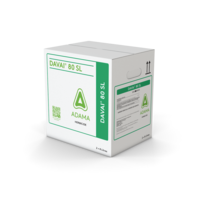
DAVAI® 80 SL
Tough broadleaf weed control with tank-mix flexibility and excellent crop safety.
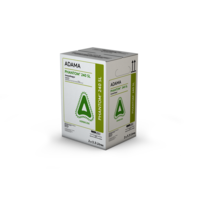
PHANTOM® 240 SL
Get early post-emergent broadleaf weed control in field peas, dry beans, alfalfa and soybean crops with extended control of select shallow germinating weeds to help...
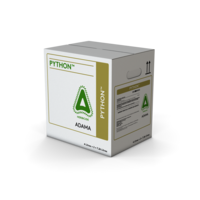
PYTHON®
PYTHON® combines two powerful actives providing resistance management and broad spectrum weed control.